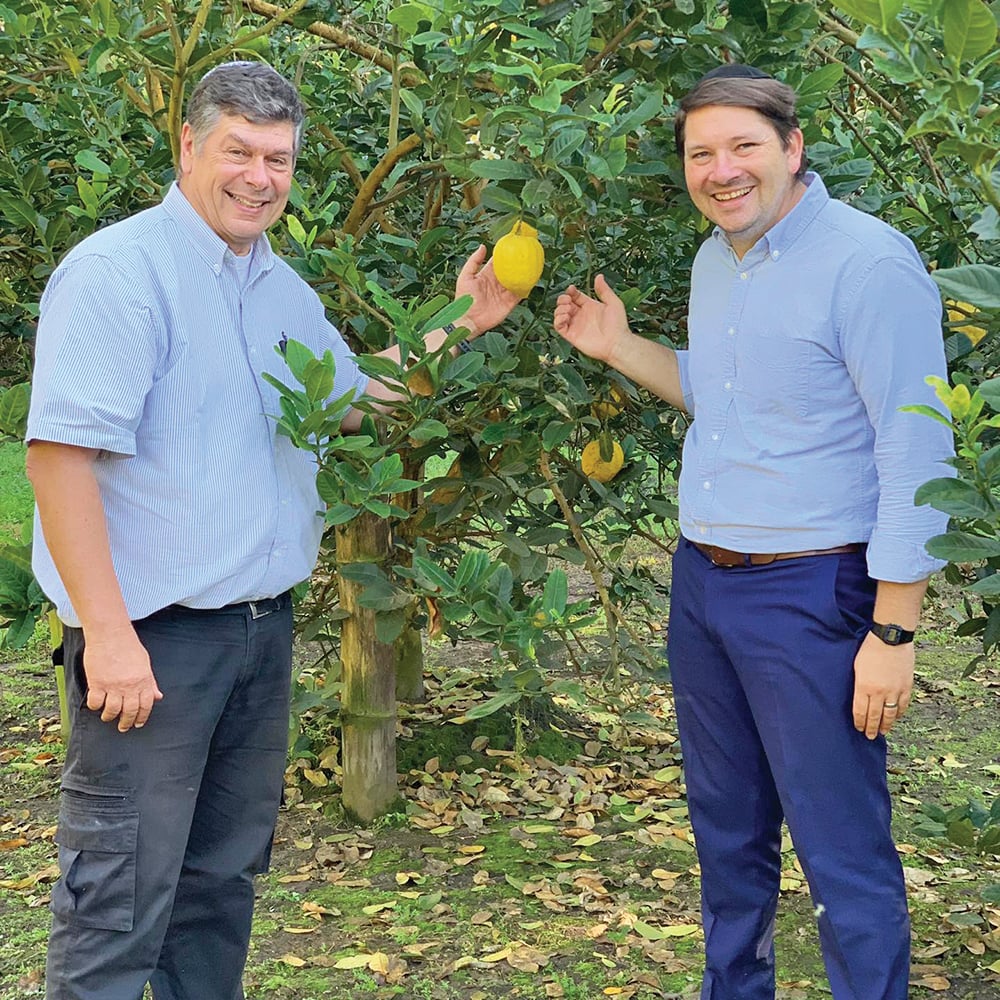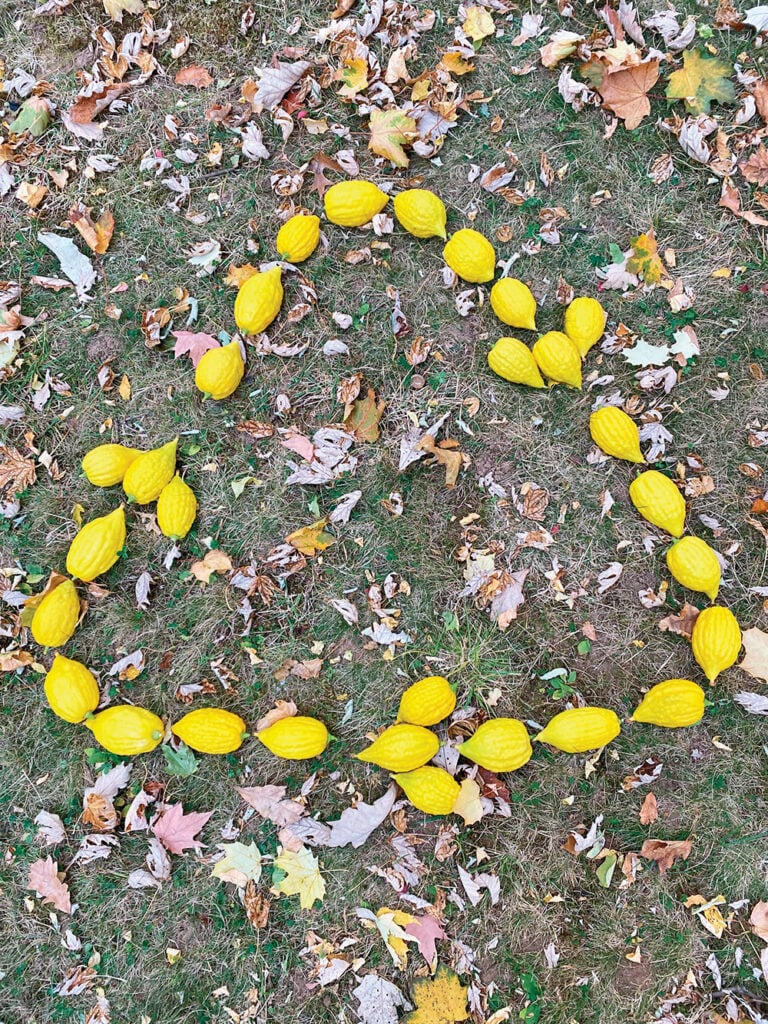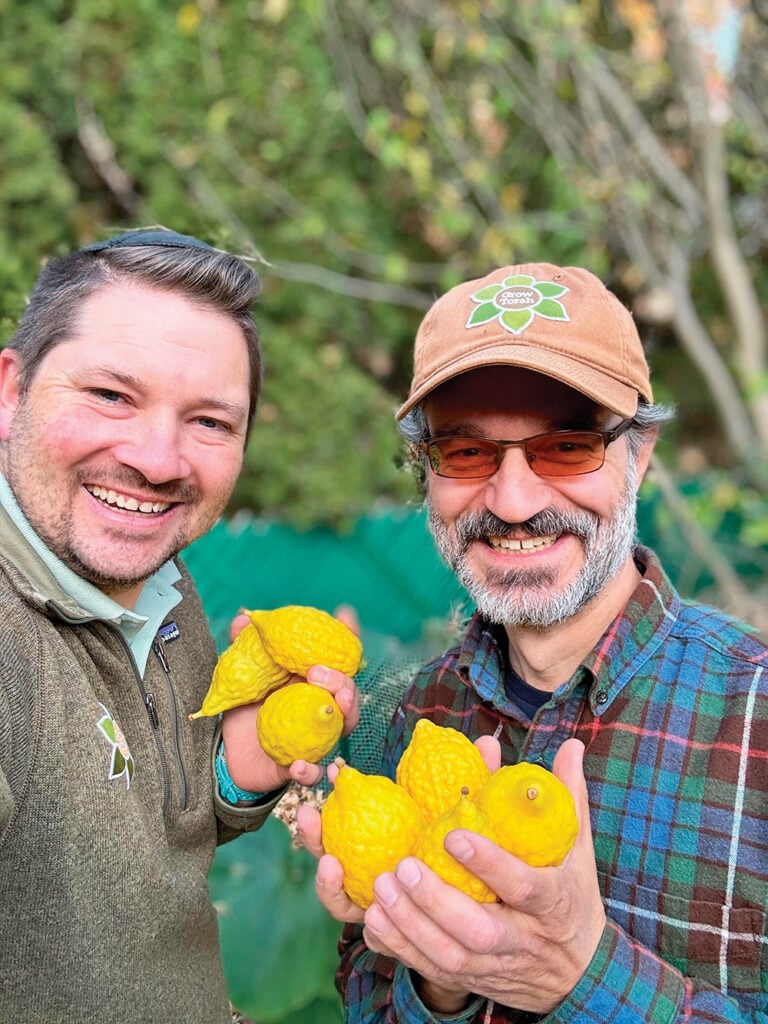
The mission of GrowTorah is to cultivate a more passionate, COMpassionate, and sustainable future driven by Torah values,” said Yosef Giller, founder and co-executive director of GrowTorah. “We want to bring Torah and ecological responsibility together whenever and however we can.”
Giller explained that etrog composting is a way to take something holy, a “dvar she’bkedusha,” and repurpose it for something else. Transforming an etrog into fertilizer is pretty awesome, and the process of composting does exactly that. “We often teach about the mitzvah of bal tashchit, of not being wasteful with our resources and there are so many derivative lessons from this mitzvah,” he said, noting that we are bidden to habituate ourselves to think creatively about what is done with objects and materials once their initial purpose is fulfilled, rather than absently tossing them in the trash.

“I was also inspired to do more with etrogim in the summer of 2023 when I was lucky enough to spend a week in Tucuman, Argentina at the Citromax Farms,” Giller noted. He studied with their agronomists, learned about organic lemon farming and their smaller etrog growing project. He studied with Josh Klein, an expert from the Vulcani Institute for Agriculture and Halacha in Israel, as well as the Citromax agronomists, experts in lemon production. The trip was funded by the Wexner Field Fellowship to support Giller’s professional development and was hosted by the Citromax team. “It was inspiring and eye-opening to learn from experts who operate at such a massive international scale, and do so in true partnership with the earth. I came back wanting to do something special with etrogim. We also had a pilot composting program at GrowTorah’s headquarters (aka my backyard), so we had the space to work with.”
The etrog composting project started as a pilot program with a handful of people in 2022, to see if the concept could work. People were receptive, but only a few participated. In 2023, inspired by the Argentina trip, and with the support of Giller’s new colleague, Program Coordinator Shoshi Ehrenreich, more schools and shuls got involved, and 468 etrogim from 87 families at 19 partner institutions were composted. This year with 25 organizations on board, they anticipate surpassing those numbers significantly, and encourage Jewish Link readers to join in the project.
Lulavim can be composted, too. However, at this time GrowTorah does not have the space to compost them. Individuals can compost them in a home compost, an excellent way to get a compost pile started. Many municipalities have compost drop-off sites. Check with the public works department where you live.

As a halachic consideration, etrog composting is a beautiful way to practice the mitzvah of bal tashchit, which prohibits wastefulness and encourages the responsible use of resources. After Sukkot, many people have etrogim that are no longer needed for the holiday, but have acquired the status of being kadosh. One view is that there is a prohibition of discarding in the trash a “dvar she’b’kedusha.” So, said Giller, “Instead of discarding them in the trash, composting the etrogim transforms them into nutrient-rich soil, keeping them in the growth cycle, and out of landfills.” Composting is one way of honoring the status of the etrog’s holy purpose and prevents it from going to waste or into the trash.
So, what happens to the etrog compost once the site is filled or closed? The etrogim are added to the composting system, along with other garden debris, food waste, dried leaves and wood chips. Giller’s colleague Shimon Steiner mixes it weekly to speed along the decomposition process, transforming it into fertilizer in about three to six months. Then it becomes suitable to make your grass, trees and garden grow. Agricultural magic!
GrowTorah also announced the recent launch of two new and exciting projects, in addition to the etrog composting campaign. Tiferet HaTorah is an educational coloring book for the weekly parsha that explores the beauty of Torah and nature. Via an engaging, hands-on experience for children and adults alike, coloring fans explore the weekly parsha. Order your copy of this beautiful and fun book on the website (www.growtorah.org/tiferet) for $18. Discounted bulk orders and organizational/institutional discounts are available.
A second project GrowTorah just launched is “Olam BaShavua,” a series designed to educate, inspire and inform by highlighting advances in environmental issues. According to the website, “We generally look for news relating to our four core values: Incubating Emunah, Stewarding the Earth, Tzedakah, and Compassion for Creatures.” Olam BaShavua is posted weekly on the website (www.growtorah.org/olam) and sent out in a weekly newsletter with additional parsha content. Sign up at www.growtorah.org/parsha
For information about composting dates, time, drop-off locations, deadlines and more, visit www.growtorah.org/etrog. The final day for etrog drop-off at all locations is November 7. There is no fee to compost your etrog with GrowTorah. All they ask is that you register your etrog on the website using the link shown above, so they know how many to expect.








